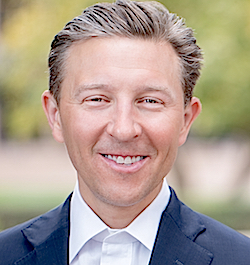
It may be several years before demand catches up with supply in senior housing, but HCP expects to outperform the competition through five major initiatives, Executive Vice President and Chief Investment Officer Scott M. Brinker said Thursday on the real estate investment trust’s first-quarter earnings call.
Brinker, who joined the REIT in March after a contentious departure from Welltower, said HCP plans to:
- Sell select assets and transition others to new operating partners.
- Convert select high-quality triple-net lease portfolios with strong growth potential into the senior housing operating portfolio.
- Redevelop select older buildings that are located in “tremendous” locations.
- Acquire and develop properties, and form relationships with operators, in a smart way.
- Establish an asset management platform that capitalizes on data, analytics and relationships.
The REIT isn’t “quite as optimistic as others that the industry at large is going to have a material turnaround in performance in 2019,” Brinker said. Nationally, he said, a “truly significant” increase in the demand growth rate is likely to take more than five years, although individual companies will perform above or below the national average.
“Today, the environment is difficult, and it likely will remain so for the next few years,” Brinker said. “New construction has started to decline, but off a very high base, so the absolute number is still elevating. There needs to be a more significant and sustained slowdown in new starts before we would feel confident about the sector returning to strong growth in earnings.”
HCP President and CEO Thomas Herzog said the REIT is making moves that will reduce the concentration of senior housing assets in its portfolio to approximately 40%, which will mean it will have less exposure to new supply. Ultimately, however, “senior housing is an important part of our long-term strategy,” Brinker said.
“We like the fact that demand for the product is growing,” he added. “It’s becoming harder and harder to find a family who hasn’t been impacted by senior housing, and that phenomenon will only increase, because the senior population will double in size over the next two decades, and the penetration rate is rising.”
Reducing Brookdale exposure
HCP Executive Vice President and Chief Financial Officer Peter Scott said the REIT is committed to reducing its exposure to Brookdale Senior Living to no more than 16% of overall portfolio income, although it is not necessarily in a hurry to do so.
“We’ll be working with [Brookdale CEO] Cindy Baier and her team, and there are opportunities to reduce that concentration in a few different ways, so those will be things that we will be discussing,” he said.
Scott said that HCP will not pursue the lease restructuring strategy that Ventas recently announced for its Brookdale properties. “Utilizing the same approach wouldn’t be relevant for us,” he told an analyst on the call.
Several parties have expressed interest in Brookdale communities in HCP’s portfolio, Brinker said. “They would have the ability to bring in their own operating partner,” he added.
Meanwhile, 13 of 24 previously announced communities have been transitioned from Brookdale to Atria Senior Living, and the remaining ones should be transitioned by early summer, Scott said. “Additionally, we transitioned one community to another existing operator, Sonata Senior Living,” he added. “We are also nearing agreement with a select group of operators to take on the balance of the transition assets.”
HCP is in the middle of the marketing process for third-party sales, Scott said.
Brinker said that most of the previously announced sales of six communities back to Brookdale closed in April. “We’re also on track to close the sale of our joint venture interest in 48 Brookdale properties to Columbia Pacific this summer, which will generate $332 million in proceeds to HCP,” he added.



